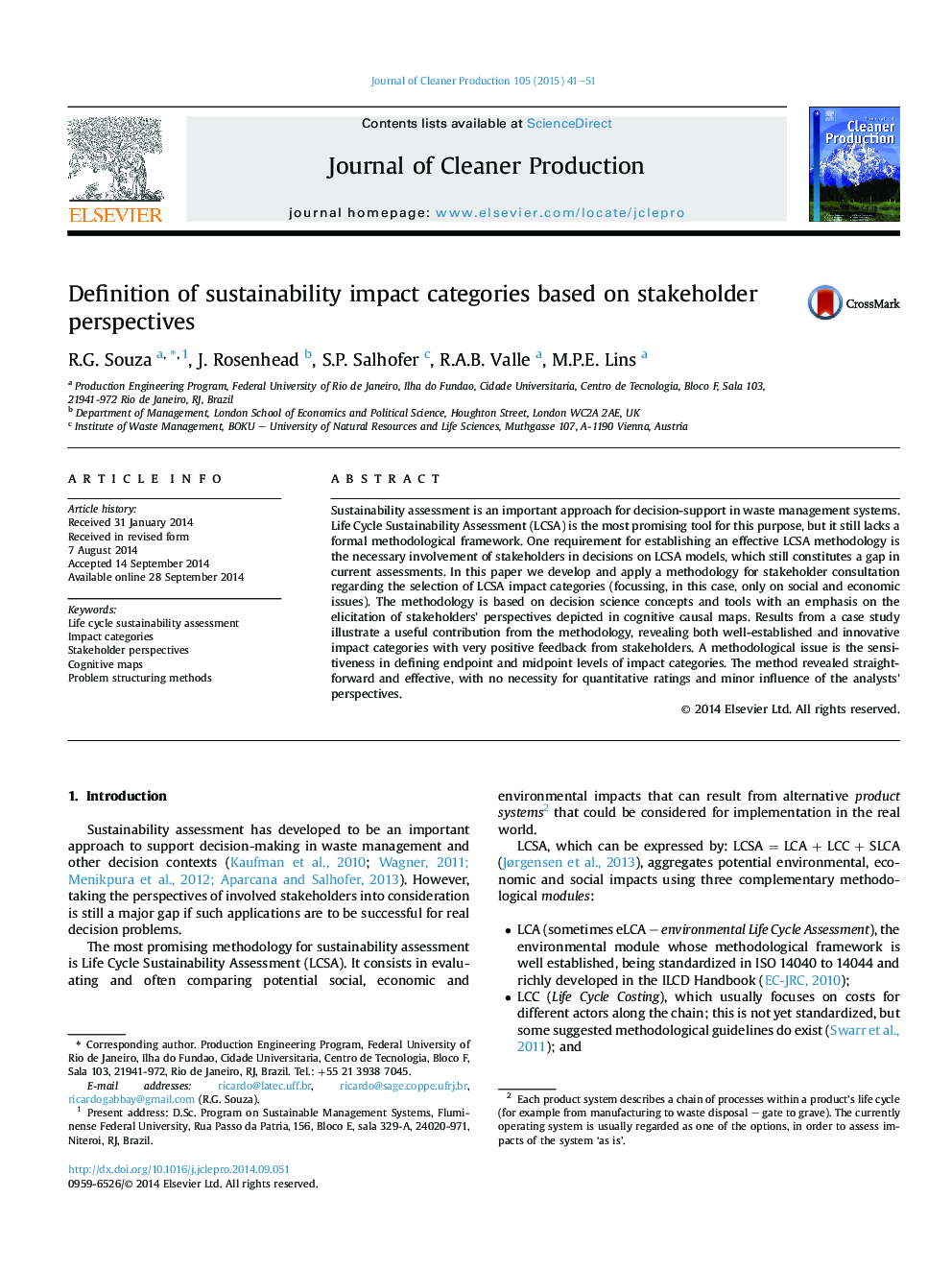| Article ID | Journal | Published Year | Pages | File Type |
|---|---|---|---|---|
| 1744526 | Journal of Cleaner Production | 2015 | 11 Pages |
Abstract
Sustainability assessment is an important approach for decision-support in waste management systems. Life Cycle Sustainability Assessment (LCSA) is the most promising tool for this purpose, but it still lacks a formal methodological framework. One requirement for establishing an effective LCSA methodology is the necessary involvement of stakeholders in decisions on LCSA models, which still constitutes a gap in current assessments. In this paper we develop and apply a methodology for stakeholder consultation regarding the selection of LCSA impact categories (focussing, in this case, only on social and economic issues). The methodology is based on decision science concepts and tools with an emphasis on the elicitation of stakeholders' perspectives depicted in cognitive causal maps. Results from a case study illustrate a useful contribution from the methodology, revealing both well-established and innovative impact categories with very positive feedback from stakeholders. A methodological issue is the sensitiveness in defining endpoint and midpoint levels of impact categories. The method revealed straightforward and effective, with no necessity for quantitative ratings and minor influence of the analysts' perspectives.
Keywords
Related Topics
Physical Sciences and Engineering
Energy
Renewable Energy, Sustainability and the Environment
Authors
R.G. Souza, J. Rosenhead, S.P. Salhofer, R.A.B. Valle, M.P.E. Lins,
